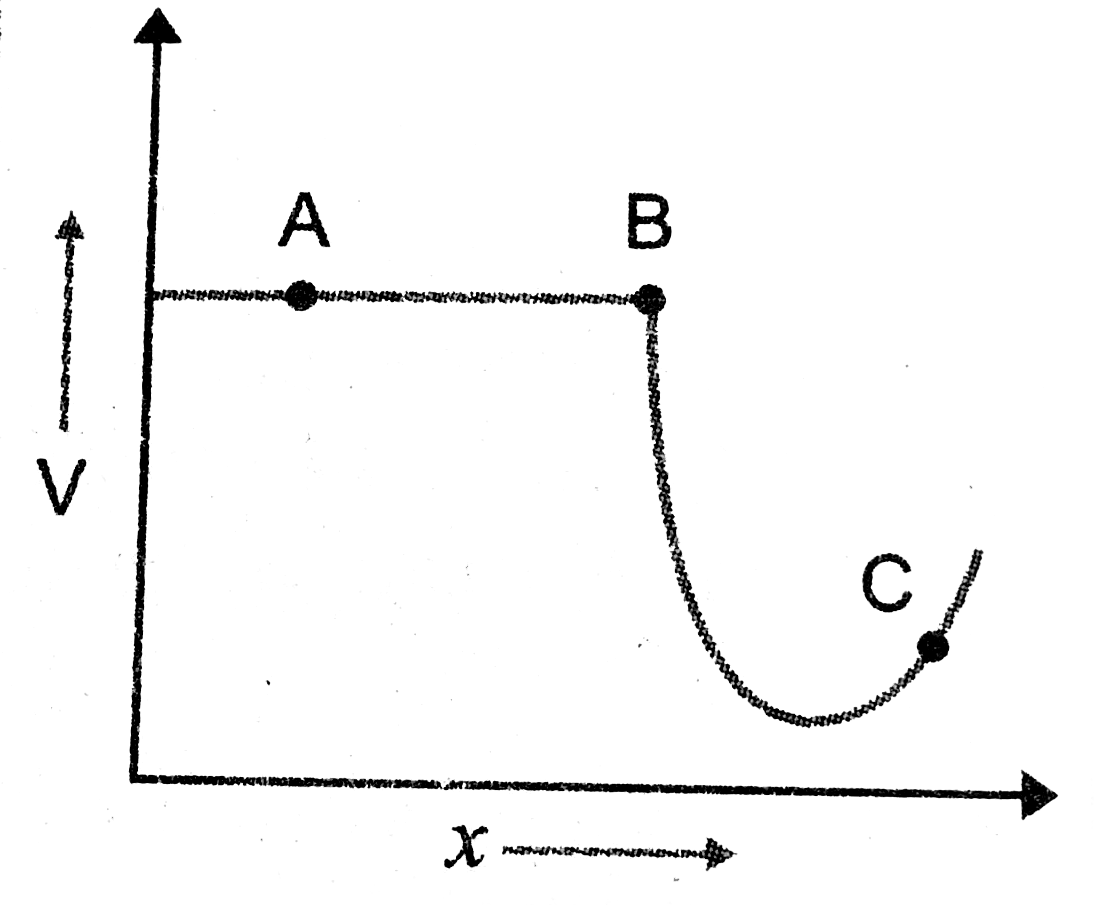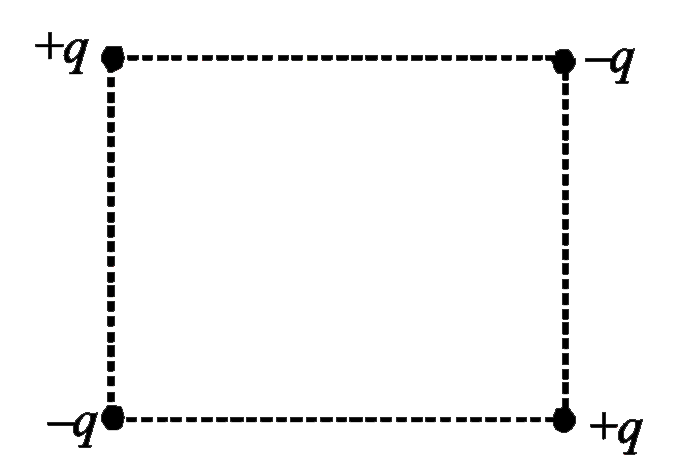If potential V = 0 at a point, does it also mean that electric field E should also be zero at that point? Explain your answer.
Since, E=−dVdt
When V = 0, then £ will also be zero
Similar Questions
Is the electrostatic potential necessarily zero at a point where the electric field strength is zero? Give an example to illustrate your answer,.
View SolutionAnswer the following:
(a) Derive an expression for the potential energy of an electric dipole in a uniform electric field. Explain conditions for stable and unstable equilibrium.
(b) Is the electrostatic potential necessarily zero at a point where the electric field is zero ? Give an example to support your answer.
View Solution
Knowledge Check
Let V be the electric potential at a given point. Then the electric field Ex along x-direction at that point is given by :
A∫∞0VdxBdVdxC−dVdxD−VdVdxLet V be the electric potential at a given point. Then the electric field Ex along x-direction at that point is given by :
A∫∞0VdxBdVdxC−dVdxD−VdVdxThe electric potential V at any point ( x,y, z) in space is given by V=4x2V . The electric field E (in Vm) at the point ( 1,0,2) is
A+8 in x directionB8 in - x directionC16 in +x directionD16 in -x direction
Fig shows the variation of electrostatic potential V with distance x for a given charge distribution.

From the points marked A,B and C, indentify the point at which electric field is (i) zero
(ii) maximum.
Explain your answer in each case.
View Solution4Statement - 1 : The electric potential and the electric field intensity at the centre of a square having four fixed point charges at their vertices as shown in figure are zero.
Statement - 2 : If electric potential at a point is zero then the magnitude of electric field at that point must be zero.

View SolutionThe electric field and the electric potential at a point are E and V respectively.
View SolutionThe electric field and the electric potential at a point are E and V respectively.
View SolutionOn the basis of your understanding of the following paragraph and the related studied concepts.
An equipotential surface is a surface with a constant value of electric potential at all points on the surface. The component of electric field parallel to an equipotential surface is zero, as the potential does not change in this direction. Thus, the electric field is perpendicular to the equipotential surface at each point of the surface. Further, say the direction of electric field electrical potential gradually fall with distance.
Draw equipotential surfaces around an isolated positive point charge + q. Mark direction of electric field →E also.
View Solution
